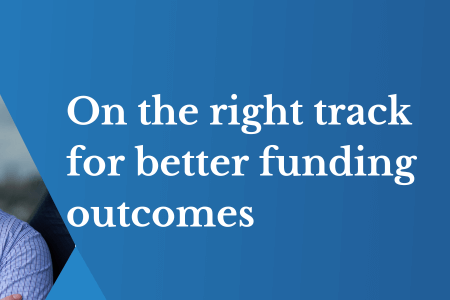Severe Behaviour Response teams on the way
November 5, 2015 | Aged Care Management

Our aged care sector is responsible for more than just providing accommodation and care options for elderly Australians. It’s also an important helping hand for those with dementia and the associated severe behaviours.
Providers across Australia are now one of the primary avenues of care for these people, but there’s no getting around the fact as the population climbs, the pressure will continue mounting. That’s why it’s important that organisations prioritise initiatives to ensure financial sustainability and a workforce with the right skills.
This article will take a closer look at dementia in Australia, and how a new government initiative should prove useful.
Alzheimer’s Australia estimates that there are over 342,800 people living with dementia.
Dementia and severe behaviours
Alzheimer’s Australia estimates that there are over 342,800 people living with dementia, a number that’s expected to grow and reach 400,000 in under 10 years. What’s more, without any medical breakthroughs to address the illness, the number could climb as high as 800,000 by 2050.
It’s a serious illness, and the greatest cause of disability in those over the age of 65. In those aged care facilities that receive government subsidies, over 50 per cent of residents have dementia.
There’s also the cost issue. From 2009-10, the total direct health and aged care system costs stood at around $4.9 billion.
It’s clear that financial tools like the ACFI Calculator can play an important role in preparing aged care facilities, but it’s also a good idea to take a closer look at what’s being done on the staffing front.
The first step in the plan
Recently, Aged and Community Services Australia (ACSA) came forward with a new release about Severe Behaviour Response teams (SBRT). The organisation explained that HammondCare was chosen to operate the programme throughout Australia. In a release, the organisation clearly outlined the importance of managing the logistics of the SBRTs, to ensure there’s appropriate support across the country.
“Roaming teams of experts may work in the first instance but building capacity across the sector through a whole-of-workforce approach needs to be part of the future workforce development policy and funding,” said CEO of ACSA Professor John G Kelly.
“This alternative to the over-subscribed Dementia and Severe Behaviours Supplement came out of the Ministerial Dementia Forum held late last year. While it was clear to ACSA and others in the sector that the supplement’s budget would be overspent, there was unanimous support across the sector for the need for greater support for people with severe behaviours.”
Once the teams are in place, residential aged care providers will be able to call on the support of the experts seven days a week. These providers can work on training their own staff to deal with these patients, and take the time required to built the appropriate levels of support while experts are only a phone call away.
 Is there a way to handle dementia?
Is there a way to handle dementia?Taking a look ahead
Right now, HammondCare is taking action by seeking out regional managers for the SBRTs, which include nursing, allied health and medical dementia specialists. It won’t be long before these teams are fully up and running, and ready to deal with the issues certain to come along with dementia.
Dementia is one problem that’s not going to go away at any point in the near future, especially as the number of elderly Australians continues to climb. A larger older Australians population means greater susceptibility to dementia, as well as similar illnesses and afflictions.
By taking action now, through initiatives like those noted above, it’s going to be far easier to manage them as they proliferate.


